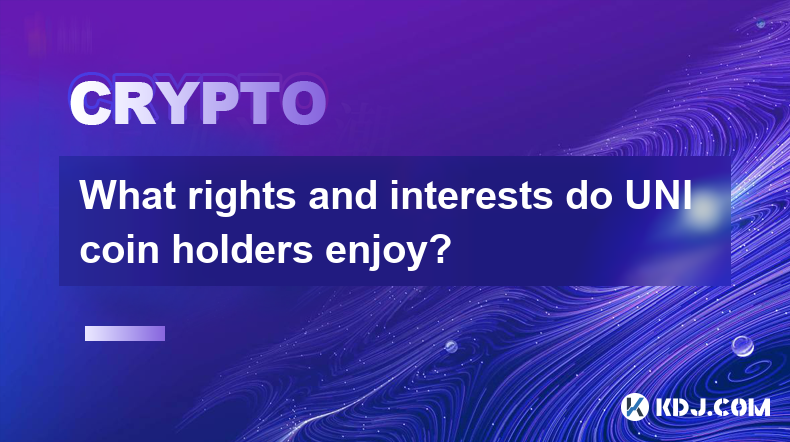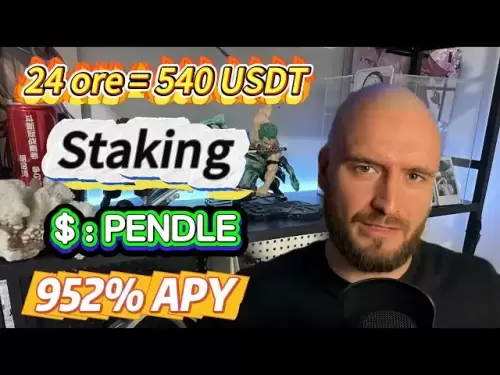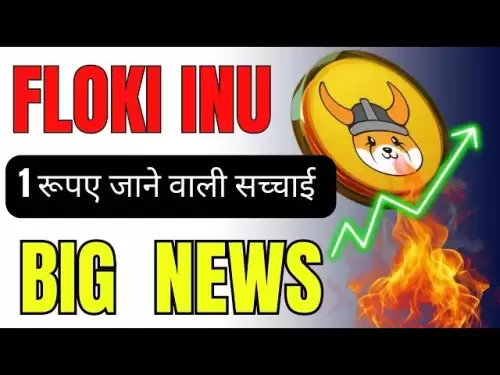-
 Bitcoin
Bitcoin $107,341.7259
0.15% -
 Ethereum
Ethereum $2,438.6204
0.70% -
 Tether USDt
Tether USDt $1.0003
-0.02% -
 XRP
XRP $2.1866
1.94% -
 BNB
BNB $649.0952
0.36% -
 Solana
Solana $150.9602
5.63% -
 USDC
USDC $0.9999
0.00% -
 TRON
TRON $0.2742
0.40% -
 Dogecoin
Dogecoin $0.1645
1.93% -
 Cardano
Cardano $0.5669
1.18% -
 Hyperliquid
Hyperliquid $37.8286
4.19% -
 Bitcoin Cash
Bitcoin Cash $491.4669
-2.74% -
 Sui
Sui $2.8150
3.06% -
 Chainlink
Chainlink $13.4184
2.91% -
 UNUS SED LEO
UNUS SED LEO $9.0809
0.27% -
 Avalanche
Avalanche $18.0295
2.60% -
 Stellar
Stellar $0.2396
1.19% -
 Toncoin
Toncoin $2.8587
0.13% -
 Shiba Inu
Shiba Inu $0.0...01160
2.59% -
 Litecoin
Litecoin $86.4192
1.45% -
 Hedera
Hedera $0.1486
1.19% -
 Monero
Monero $308.4324
0.87% -
 Polkadot
Polkadot $3.4202
1.43% -
 Bitget Token
Bitget Token $4.6436
-0.34% -
 Dai
Dai $0.9998
-0.02% -
 Ethena USDe
Ethena USDe $1.0002
0.00% -
 Uniswap
Uniswap $7.1527
3.29% -
 Pi
Pi $0.5357
-8.45% -
 Pepe
Pepe $0.0...09588
4.61% -
 Aave
Aave $259.9759
0.81%
What rights and interests do UNI coin holders enjoy?
UNI holders govern Uniswap, voting on protocol changes and potentially receiving rewards, but the token's value fluctuates, and returns aren't guaranteed.
Mar 12, 2025 at 04:10 am

Key Points:
- UNI holders have governance rights within the Uniswap decentralized exchange (DEX).
- They can participate in proposals and votes concerning protocol upgrades and changes.
- UNI holders may receive rewards and benefits from the Uniswap ecosystem.
- The value of UNI is subject to market fluctuations and is not guaranteed.
- Holding UNI doesn't guarantee specific financial returns.
What Rights and Interests Do UNI Coin Holders Enjoy?
The UNI token is the governance token of Uniswap, a prominent decentralized exchange (DEX) on the Ethereum blockchain. Holding UNI grants holders certain rights and interests within the Uniswap ecosystem. These rights are primarily focused on governance and participation in the future development of the platform. It's crucial to understand that these rights do not guarantee profits or financial stability. The value of UNI, like any cryptocurrency, fluctuates based on market conditions.
Governance Rights:
One of the most significant benefits of holding UNI is the ability to participate in governance. This means UNI holders can propose and vote on changes to the Uniswap protocol. This includes upgrades, feature additions, and other crucial decisions affecting the platform's future. The governance process typically involves submitting proposals, discussing them within the community, and then voting on their implementation. The weight of each vote is proportional to the number of UNI tokens held.
Participation in Protocol Development:
The governance rights extend beyond simple voting. Active participation in discussions and proposal development is encouraged. UNI holders can contribute ideas, provide feedback, and help shape the direction of Uniswap. This direct influence on the platform’s evolution is a key differentiator for UNI holders compared to users of centralized exchanges. The level of community engagement is vital to the success of the decentralized governance model.
Potential for Rewards and Benefits:
While not guaranteed, UNI holders may potentially receive rewards or benefits from the Uniswap ecosystem. These rewards can take various forms, including airdrops of new tokens or participation in specific initiatives designed to incentivize holders. The specific nature and availability of these rewards are not fixed and depend on the decisions made through the governance process. Information on any potential rewards is usually announced through official Uniswap channels.
Understanding the Risks:
It's essential to understand that holding UNI involves inherent risks. The cryptocurrency market is highly volatile, and the price of UNI can fluctuate significantly. There's no guarantee of any return on investment, and holders could potentially lose some or all of their investment. Before investing in UNI or any cryptocurrency, it's crucial to conduct thorough research and understand the associated risks.
Liquidity Provision Rewards (Impermanent Loss):
While not directly related to holding UNI, it's important to mention liquidity provision. Users can provide liquidity to Uniswap pools and earn trading fees in return. However, this comes with the risk of impermanent loss – the potential loss incurred if the price of the assets provided changes significantly. While not a direct right of UNI holders, the ability to participate in liquidity provision is a feature of the Uniswap ecosystem closely tied to its success.
How to Participate in Governance:
- Acquire UNI tokens: You must first acquire UNI tokens through exchanges or other means.
- Register your wallet: Connect your compatible wallet (e.g., MetaMask) to the Uniswap governance platform.
- Participate in discussions: Engage in discussions on governance proposals through the official Uniswap channels.
- Vote on proposals: Cast your votes on proposals that affect the Uniswap protocol.
Frequently Asked Questions:
Q: Do I need to stake my UNI to participate in governance?
A: Staking UNI might be required for certain governance actions or to receive rewards, depending on the specific governance mechanisms implemented by Uniswap at any given time. Check the official Uniswap documentation for the most up-to-date information.
Q: What if I disagree with a governance proposal?
A: You can vote against the proposal, and the outcome depends on the overall voting results. Your vote carries weight proportional to the number of UNI tokens you hold.
Q: How often are governance proposals put forward?
A: The frequency of governance proposals varies. They are put forward as needed to address protocol upgrades, new features, or other crucial matters related to the Uniswap ecosystem.
Q: Is there a minimum amount of UNI required to participate in governance?
A: While there might not be a strict minimum amount to participate in the voting process, having a substantial amount of UNI generally increases your voting power. However, the exact details are subject to change and should be checked on the official Uniswap website.
Q: Can I sell my UNI tokens at any time?
A: Yes, you can sell your UNI tokens on cryptocurrency exchanges at any time. However, remember that the price is subject to market fluctuations, and you may experience gains or losses depending on the market conditions.
Q: Are there fees associated with participating in Uniswap governance?
A: There may be transaction fees on the Ethereum blockchain associated with voting and interacting with the governance platform. These fees vary based on network congestion.
Q: Where can I find more information about Uniswap governance?
A: Refer to the official Uniswap website and their governance documentation for the most up-to-date and accurate information. The information provided here is for informational purposes only and shouldn't be considered financial advice.
Disclaimer:info@kdj.com
The information provided is not trading advice. kdj.com does not assume any responsibility for any investments made based on the information provided in this article. Cryptocurrencies are highly volatile and it is highly recommended that you invest with caution after thorough research!
If you believe that the content used on this website infringes your copyright, please contact us immediately (info@kdj.com) and we will delete it promptly.
- BONK Price Prediction: Is the Meme Coin Ready to Pop?
- 2025-06-29 14:30:12
- Bitcoin Funding Rates, Short Squeeze, and the Price Decline: A Perfect Storm?
- 2025-06-29 14:50:12
- Bitcoin Cash (BCH): Explosive Move or False Dawn?
- 2025-06-29 15:10:12
- Chainlink, Lightchain AI, and Presale Hype: What's Real?
- 2025-06-29 15:10:12
- Pi Coin Price Prediction Today: Navigating Uncertainty
- 2025-06-29 14:55:12
- Meme Coins: Buy Now, Hold Forever? (Maybe)
- 2025-06-29 14:30:12
Related knowledge

How to customize USDT TRC20 mining fees? Flexible adjustment tutorial
Jun 13,2025 at 01:42am
Understanding USDT TRC20 Mining FeesMining fees on the TRON (TRC20) network are essential for processing transactions. Unlike Bitcoin or Ethereum, where miners directly validate transactions, TRON uses a delegated proof-of-stake (DPoS) mechanism. However, users still need to pay bandwidth and energy fees, which are collectively referred to as 'mining fe...

USDT TRC20 transaction is stuck? Solution summary
Jun 14,2025 at 11:15pm
Understanding USDT TRC20 TransactionsWhen users mention that a USDT TRC20 transaction is stuck, they typically refer to a situation where the transfer of Tether (USDT) on the TRON blockchain has not been confirmed for an extended period. This issue may arise due to various reasons such as network congestion, insufficient transaction fees, or wallet-rela...

How to cancel USDT TRC20 unconfirmed transactions? Operation guide
Jun 13,2025 at 11:01pm
Understanding USDT TRC20 Unconfirmed TransactionsWhen dealing with USDT TRC20 transactions, it’s crucial to understand what an unconfirmed transaction means. An unconfirmed transaction is one that has been broadcasted to the blockchain network but hasn’t yet been included in a block. This typically occurs due to low transaction fees or network congestio...

How to check USDT TRC20 balance? Introduction to multiple query methods
Jun 21,2025 at 02:42am
Understanding USDT TRC20 and Its ImportanceUSDT (Tether) is one of the most widely used stablecoins in the cryptocurrency market. It exists on multiple blockchain networks, including TRC20, which operates on the Tron (TRX) network. Checking your USDT TRC20 balance accurately is crucial for users who hold or transact with this asset. Whether you're sendi...

What to do if USDT TRC20 transfers are congested? Speed up trading skills
Jun 13,2025 at 09:56am
Understanding USDT TRC20 Transfer CongestionWhen transferring USDT TRC20, users may occasionally experience delays or congestion. This typically occurs due to network overload on the TRON blockchain, which hosts the TRC20 version of Tether. Unlike the ERC20 variant (which runs on Ethereum), TRC20 transactions are generally faster and cheaper, but during...

The relationship between USDT TRC20 and TRON chain: technical background analysis
Jun 12,2025 at 01:28pm
What is USDT TRC20?USDT TRC20 refers to the Tether (USDT) token issued on the TRON blockchain using the TRC-20 standard. Unlike the more commonly known ERC-20 version of USDT (which runs on Ethereum), the TRC-20 variant leverages the TRON network's infrastructure for faster and cheaper transactions. The emergence of this version came as part of Tether’s...

How to customize USDT TRC20 mining fees? Flexible adjustment tutorial
Jun 13,2025 at 01:42am
Understanding USDT TRC20 Mining FeesMining fees on the TRON (TRC20) network are essential for processing transactions. Unlike Bitcoin or Ethereum, where miners directly validate transactions, TRON uses a delegated proof-of-stake (DPoS) mechanism. However, users still need to pay bandwidth and energy fees, which are collectively referred to as 'mining fe...

USDT TRC20 transaction is stuck? Solution summary
Jun 14,2025 at 11:15pm
Understanding USDT TRC20 TransactionsWhen users mention that a USDT TRC20 transaction is stuck, they typically refer to a situation where the transfer of Tether (USDT) on the TRON blockchain has not been confirmed for an extended period. This issue may arise due to various reasons such as network congestion, insufficient transaction fees, or wallet-rela...

How to cancel USDT TRC20 unconfirmed transactions? Operation guide
Jun 13,2025 at 11:01pm
Understanding USDT TRC20 Unconfirmed TransactionsWhen dealing with USDT TRC20 transactions, it’s crucial to understand what an unconfirmed transaction means. An unconfirmed transaction is one that has been broadcasted to the blockchain network but hasn’t yet been included in a block. This typically occurs due to low transaction fees or network congestio...

How to check USDT TRC20 balance? Introduction to multiple query methods
Jun 21,2025 at 02:42am
Understanding USDT TRC20 and Its ImportanceUSDT (Tether) is one of the most widely used stablecoins in the cryptocurrency market. It exists on multiple blockchain networks, including TRC20, which operates on the Tron (TRX) network. Checking your USDT TRC20 balance accurately is crucial for users who hold or transact with this asset. Whether you're sendi...

What to do if USDT TRC20 transfers are congested? Speed up trading skills
Jun 13,2025 at 09:56am
Understanding USDT TRC20 Transfer CongestionWhen transferring USDT TRC20, users may occasionally experience delays or congestion. This typically occurs due to network overload on the TRON blockchain, which hosts the TRC20 version of Tether. Unlike the ERC20 variant (which runs on Ethereum), TRC20 transactions are generally faster and cheaper, but during...

The relationship between USDT TRC20 and TRON chain: technical background analysis
Jun 12,2025 at 01:28pm
What is USDT TRC20?USDT TRC20 refers to the Tether (USDT) token issued on the TRON blockchain using the TRC-20 standard. Unlike the more commonly known ERC-20 version of USDT (which runs on Ethereum), the TRC-20 variant leverages the TRON network's infrastructure for faster and cheaper transactions. The emergence of this version came as part of Tether’s...
See all articles

























































































